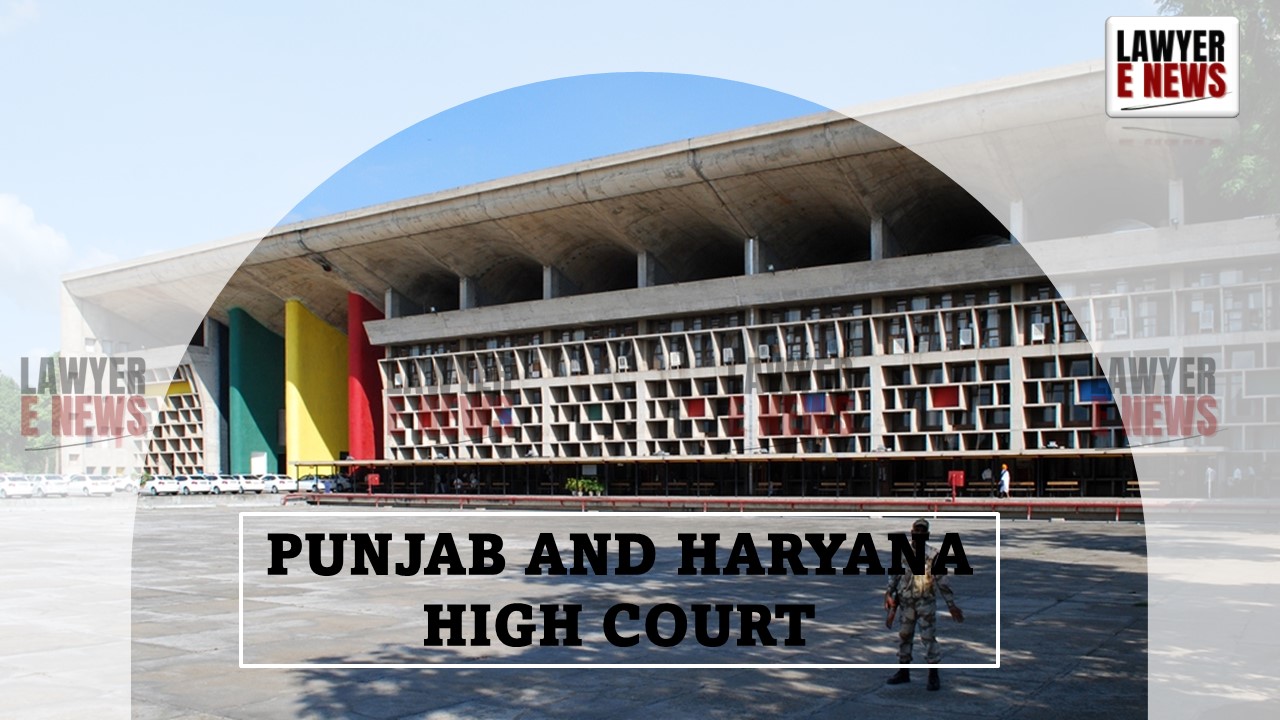-
by Admin
15 February 2026 2:36 AM



Mandatory Nature of Section 21(5) of NIA Act Ensures National Security: Procedural Law Takes Precedence - Punjab and Haryana High Court delivered a significant ruling, holding that it lacks jurisdiction to condone delays beyond the 90-day limitation period prescribed under Section 21(5) of the National Investigation Agency Act, 2008 (NIA Act). The judgment, authored by a bench of Justice Sureshwar Thakur and Justice Kuldeep Tiwari, reaffirms the mandatory nature of the provision and stresses its importance in ensuring timely adjudication in cases under the Unlawful Activities (Prevention) Act, 1967 (UAPA).
The decision dismissed an appeal filed by Navish Kumar @ Navi against the order of the Special Court denying him bail in a UAPA case, on the grounds of delay in filing the appeal.
The appellant, Navish Kumar @ Navi, challenged the rejection of his bail application by the Special Judge under the UAPA. His appeal to the High Court was filed beyond the 90-day limitation period prescribed under Section 21(5) of the NIA Act, prompting the Court to examine whether it had jurisdiction to condone the delay.
The appellant argued that the limitation period under Section 21(5) infringes his fundamental right to life and personal liberty under Article 21 of the Constitution of India, and urged the Court to treat the limitation period as directory rather than mandatory.
The respondent, State of Punjab, contended that the limitation clause under Section 21(5) is unambiguous and reflects the legislative intent to prevent misuse of appellate procedures in cases involving national security.
The case raised critical legal questions:
Is the 90-day limitation period under Section 21(5) of the NIA Act mandatory or directory?
Does the provision violate the fundamental rights guaranteed under Article 21 of the Constitution?
Can Section 5 of the Limitation Act be invoked to condone delays in appeals under the NIA Act?
The Court emphasized that the second proviso to Section 21(5) explicitly states that “no appeal shall be entertained after the expiry of the period of ninety days”, which clearly rules out the applicability of Section 5 of the Limitation Act. The phrase “shall” denotes a mandatory provision, leaving no discretion with the Court to condone delays.
The Court held: “The specificity of the limitation period reflects the legislative wisdom aimed at ensuring the swift adjudication of matters involving national security. Any liberal interpretation of the provision would defeat its purpose.”
The Court underlined that UAPA is a special statute designed to address threats to national security, and its procedural rigor is justified by the extraordinary nature of the offenses. The 90-day limitation is intended to balance the rights of the accused with national security concerns, ensuring that appeals are filed promptly and without delay.
The judgment stated: “The NIA Act embodies the legislative intent to expedite proceedings in cases involving terrorism and insurgency. The imposition of strict procedural norms is necessary to preserve the integrity of the judicial process in such sensitive matters.”
While recognizing the fundamental right to life and personal liberty, the Court clarified that restrictions imposed through a procedure established by law are valid under Article 21. The mandatory limitation does not unreasonably curtail the accused’s rights, as the UAPA allows reapplication for bail on the emergence of changed circumstances.
The Court explained: “The right to appeal against conviction, which impacts fundamental liberty, is distinct from the right to appeal against declining bail orders. The latter permits successive applications for bail based on new circumstances, preserving the accused’s liberty.”
The appellant cited judgments such as Buhari @ Kichan Buhari v. State (Madras High Court), which read down the mandatory nature of the 90-day limitation. However, the Punjab and Haryana High Court declined to follow such interpretations, finding them inconsistent with the legislative intent and contrary to the procedural framework of the NIA Act.
The Court noted: “Reading down the provision to treat the limitation as directory would undermine the statutory scheme and compromise national security imperatives.”
The High Court dismissed the appeal, holding that it had no jurisdiction to condone the delay beyond the mandatory 90-day limitation period under Section 21(5) of the NIA Act.
The Court concluded: “The legislative framework governing UAPA cases reflects the paramount importance of national security. Strict adherence to the procedural requirements of the NIA Act ensures a balance between individual rights and the collective interests of the nation.”
The ruling reinforces the mandatory nature of procedural limitations under the NIA Act and highlights the need for promptness in filing appeals in cases involving national security. It also establishes a clear distinction between procedural delays in conviction appeals and bail-related appeals, emphasizing the importance of adhering to statutory timelines in the latter.
Date of Decision: December 20, 2024
